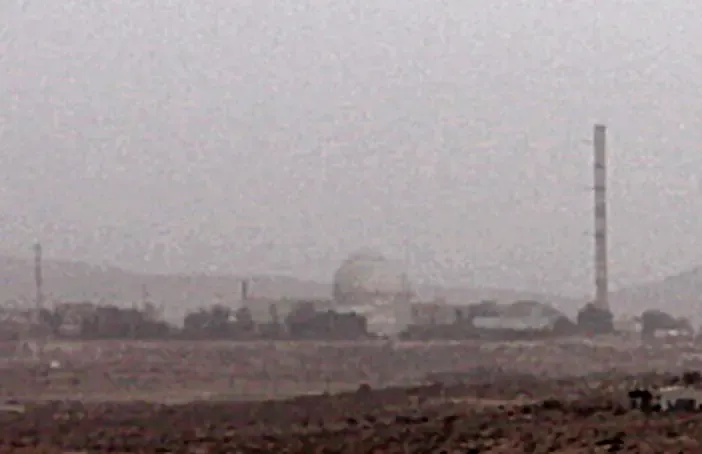Israel Increases Security Measures at Key Facility in Response to Iranian Threats

TL;DR
Israel has heightened security at an unspecified sensitive facility following intelligence reports of a potential Iranian retaliation, likely using proxy forces from Iraq. This move follows recent direct Israeli airstrikes on Iranian sites and escalating threats from Iranian officials. Iran’s potential response, anticipated before the U.S. Presidential Election, could involve drones and ballistic missiles aimed at strategic Israeli locations. The report from Kan News underscores the heightened alert in Israel amid a cycle of increasing hostilities with Iran.
Israel Increases Security Measures at Key Facility in Response to Iranian Threats
In a recent report by Kan News, Israel’s public broadcasting service, Israeli security forces have heightened security measures at an undisclosed sensitive facility due to a credible threat of an impending Iranian attack. This precautionary action comes amid escalating tensions between Israel and Iran, which have intensified following Israel’s direct airstrikes on Iranian military infrastructure within Iranian territory. According to Kan News, Israeli intelligence suggests that an Iranian retaliation is likely, potentially carried out through Iran’s regional proxy forces operating in Iraq.
What is Kan News?
Kan News is the news branch of Kan (Israeli Public Broadcasting Corporation, IPBC), Israel’s national public broadcaster. Established in 2017, Kan serves as a major source of news, cultural programming, and in-depth analysis across Israel, with a commitment to unbiased, editorially independent reporting. Funded by the government but operating autonomously, Kan News is known for its comprehensive coverage of national security issues, diplomacy, and Israeli domestic affairs. The network's access to governmental and defense sources makes it a vital outlet for breaking news on Israeli defense and international relations, including recent updates on heightened security protocols and threats to Israel’s key sites. Kan News is often at the forefront of reporting on Israel’s critical security concerns, and this report highlights the gravity with which Israeli authorities view the current Iranian threat.
Context: Recent Escalations in Israel-Iran Relations
Israel’s heightened security measures follow significant military engagements between Israel and Iran over the past month. In early October, Iran launched an unprecedented missile attack against Israel, reportedly involving around 200 ballistic missiles aimed at strategic locations, including Nevatim Airbase. Israel’s air defense systems managed to intercept many of the missiles, but this attack marked one of the most direct and substantial assaults by Iran on Israeli territory to date. Following the October 1 attack, Israel responded with direct airstrikes within Iranian territory on October 26, targeting Iranian missile production sites, air defenses, and allied positions in Syria and Iraq.
These recent strikes signal a shift in Israel’s defense strategy, as Israel has traditionally focused on curbing Iranian influence through indirect strikes on proxy forces in Syria, Iraq, and Lebanon. By moving to target Iranian infrastructure within Iran itself, Israel has demonstrated a new level of engagement in what has long been a proxy-driven conflict. This shift underlines Israel’s commitment to disrupting Iran’s military capabilities, especially those that could pose a significant threat to Israel’s security.
Iran’s Anticipated Retaliation and the Role of Proxy Forces
Israel’s intelligence sources indicate that Iran may respond to these strikes by leveraging its network of proxy forces in Iraq rather than launching directly from Iranian soil. Pro-Iranian militias, such as Kata’ib Hezbollah and Asa’ib Ahl al-Haq, provide Iran with a flexible, deniable means of projecting power across the Middle East, enabling it to retaliate against Israeli actions while minimizing the risk of immediate Israeli counterattacks within Iran. Iranian-backed militias in Iraq have become a crucial component of Iran’s regional influence strategy, and these groups are equipped with drones, ballistic missiles, and precision-guided munitions that can be used to target Israeli assets from nearby Iraqi territories.
The use of proxy forces aligns with Iran’s longstanding strategy of asymmetric warfare, which relies on indirect methods to strike adversaries. Iran’s decision to act from Iraq may also reflect a calculated attempt to avoid further direct Israeli strikes on its territory, preserving strategic assets while still asserting pressure on Israel.
Increased Security at Sensitive Israeli Facilities
In response to these threats, Israel has increased security measures at various sensitive sites, although the specific locations remain undisclosed. These enhanced precautions likely involve additional surveillance, restricted access, and the deployment of specialized security forces to protect vital facilities, particularly those essential to Israel’s defense and intelligence infrastructure. Security protocols at facilities such as military bases, intelligence centers, and air defense installations are likely to be on high alert as Israel braces for possible retaliation.
The IRGC’s commander, Hossein Salami, recently warned that Iran’s retaliation would be “different from any scenario” Israel might anticipate, suggesting a complex, potentially multi-faceted response. Salami’s comments emphasize Iran’s intent to make its retaliation both unpredictable and impactful, possibly involving a combination of drone strikes, cyberattacks, and missile assaults. Iranian officials have also indicated that the response will be “definitive and painful,” heightening concerns about an imminent escalation
Implications for Regional Stability and U.S. Involvement
The U.S. is closely monitoring these developments, especially considering its own assets and personnel stationed in Iraq. American forces are already on heightened alert due to the broader regional instability, and U.S. officials have increased intelligence-sharing efforts with Israel to counter any imminent threats. Additionally, the timing of this escalation, just days before the U.S. Presidential Election, has added urgency to diplomatic and defense measures. The Biden administration has called for caution and urged Israel to avoid further escalation, although officials have committed to supporting Israel’s security against Iranian aggression.
As both countries prepare for potential confrontation, the involvement of U.S. forces and the heightened state of alert signal the broader implications of this cycle of retaliation. The U.S. could face secondary consequences if Iran’s proxies target American assets in Iraq, further complicating the regional dynamics and potentially drawing Washington deeper into the conflict.
Conclusion: A High-Stakes Security Stand-Off
Israel’s decision to increase security measures at sensitive sites underscores the gravity of the threat posed by Iran’s anticipated retaliation. This cycle of strikes and counter-strikes between Israel and Iran has pushed both nations closer to a broader conflict, with regional stability hanging in the balance. The report from Kan News on increased Israeli security protocols reflects the urgency with which Israeli authorities view the situation, acknowledging both the threat of Iranian proxies and the need to protect vital infrastructure. As tensions continue to escalate, the region remains on edge, with the risk of miscalculation or unintended escalation looming over each new development. Israel’s proactive defense measures and Iran’s rhetoric of “definitive and painful” retaliation illustrate the high stakes involved, leaving global observers and regional actors to brace for what could become a defining confrontation in the Middle East.
Cover Image Courtesy Negev Nuclear Research Centre - Public Domain
